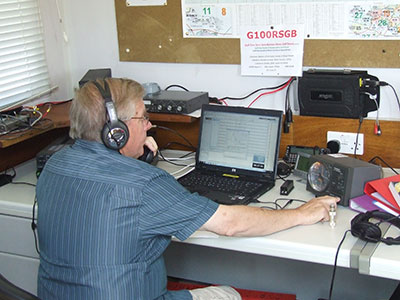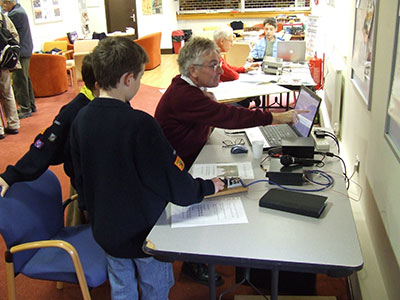Amateur Radio
There are many facets of amateur radio and HARS members have been involved in a wide range of activities that make up the hobby over the years, indeed the club has often been at the forefront of technology in some areas.
How do I get started in Amateur Radio?
To become a Radio Amateur in the UK you need to be 'licensed'. Licensing is currently achieved through a system of three progressive levels namely 'Foundation', 'Intermediate' and 'Advanced'. The gateway to the hobby is the Foundation Licence and currently this is the only way newcomers can start on their journey to become Radio Amateurs. After a short course and an exam covering the basics of Amateur Radio you could receive a Foundation Licence and make a start in this exciting new hobby.
HARS offers training and examinations for all three levels of Amateur Radio Licence. For each course there is a fee payable which covers all course materials, the exam fee, and complimentary membership of HARS for the rest of the year in which the course is taken.
All courses take place in a friendly and informal environment. The teaching (using a mixture of computer presentations and other teaching methods) and the practical sessions are conducted by experienced radio amateur trainers whose knowledge and experience enable them to make the courses interesting and fun.
It is possible to self-study for the Advanced Level Course (and sit the exam at the same time as students who have taken a HARS course). If you wish to do that, please contact us and we will register you for the exam. You only have to pay the exam fee. This is not possible with the Foundation and Intermediate Courses as there are practical elements in both courses that have to be assessed during the course itself.
Amateur Radio Training and Examinations



